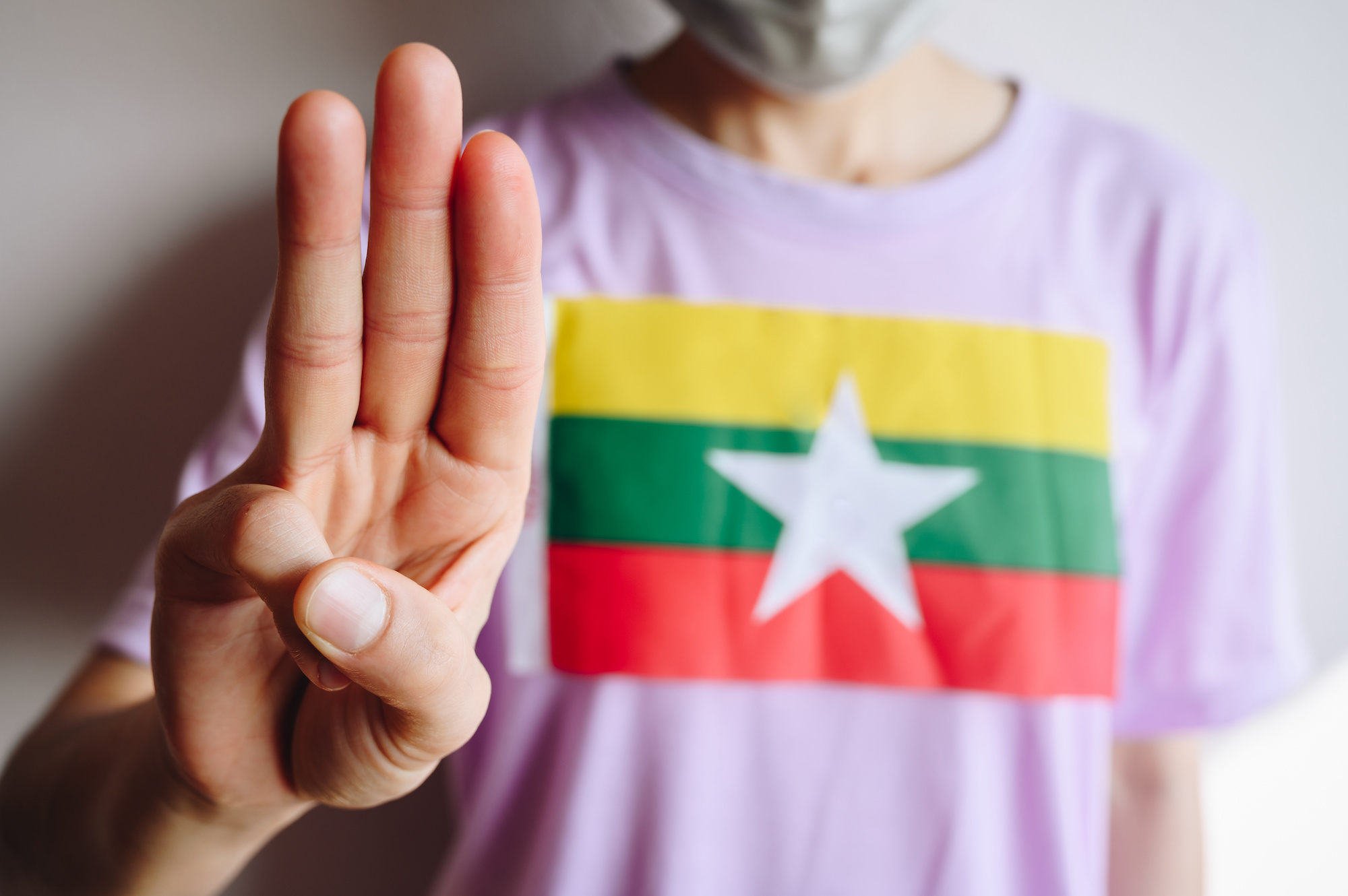“En novembre 2020, le parti d’Aung San Suu Kyi, la ‘Ligue Nationale pour la démocratie’ avait remporté largement les élections démocratiques en Birmanie. Craignant de perdre définitivement leur influence, les forces militaires ont pris le pouvoir le 1er février 2021 et l’état d’urgence fut proclamé.
Par la suite, de nombreuses personnalités politiques ainsi que des universitaires, des journalistes et des membres de la société civile ont été mis en détention. Le 2 février, les 27 États de l’Union européenne ont publié une déclaration commune, condamnant les événements, suivie par des sanctions prises à l’encontre des principaux responsables du coup d’État. En avril dernier, le Gouvernement d’unité nationale fut créé par les opposants du putsch militaire.
Le 28 mai, le Sénat français a déposé une proposition de résolution portant sur la nécessité de reconnaître le Gouvernement d’unité nationale de Birmanie. De même, l’Assemblée nationale française a déposé une proposition de résolution portant sur la dénonciation des faits et conséquences du coup d’État militaire du 1er février 2021 en Birmanie.
Depuis le coup d’État, des manifestations pacifiques ont lieu chaque jour, réclamant la libération de nombre de personnes détenues, emprisonnées ou déplacées ainsi que la reconnaissance des résultats de l’élection et du Gouvernement d’unité nationale. Les réactions des forces militaires contre les manifestations s’avèrent cependant de plus en plus violentes. Dans un effort d’étouffer les revendications de la population, la junte militaire birmane n’hésite pas de faire usage de violence. D’après M. Thomas Andrews, rapporteur spécial de l’ONU sur la Birmanie, les forces militaires de la junte ont assassiné environ 900 personnes, déplacé de force des centaines de milliers de personnes, torturé de nombreuses personnes et détenu arbitrairement près de 6 000 personnes.
Selon l’agence de presse REUTERS, des ordres confidentiels du département des postes et télécommunications auraient été donnés, interdisant aux cadres supérieurs d’entreprises de télécommunication locaux et étrangers de quitter le pays sans autorisation préalable. D’après les nouvelles, les professionnels du secteur auraient eu des ordres d’installer des technologies permettant aux autorités birmanes d’intercepter toute sorte de communication, d’appels et d’échanges de données.
Lors de la 47e session du Conseil des droits de l’Homme, la Haute-Commissaire des Nations Unies aux droits de l’Homme, Michelle Bachelet, s’est prononcée sur la situation en Birmanie. Ayant commencé en tant que crise politique, elle a considéré que la situation est désormais passée à une catastrophe multidimensionnelle en matière des droits de l’homme.
À la situation humanitaire préoccupante s’ajoute maintenant la propagation rapide du COVID-19 menant à une pénurie extrême d’oxygène et de soins accessibles aux personnes affectées due à l’effondrement du système de santé sous la junte.
Dans ce contexte, j’aimerais poser les questions suivantes à Monsieur le Ministre des Affaires étrangères et européennes :
- Quelle est l’attitude du gouvernement face aux appels à la reconnaissance du gouvernement d’unité nationale ?
- Est-ce que d’autres sanctions contre la junte, notamment portant sur le secteur du gaz et du pétrole, sont prévues au niveau européen ?
- Est-ce que des contributions humanitaires sont prévues par le gouvernement et quelle est la situation d’accès aux populations vulnérables ?
- Est-ce que Monsieur le Ministre est au courant des experts en télécommunication pris en ‘otage’ afin de soutenir le régime militaire dans l’espionnage des communications ?“
Answer
Luxembourg has repeatedly advocated the need to respect the results of the elections of November 8, 2020. Since 22nd March, 2021, the European Union has adopted three series of sanctions due to the military coup and the repression that has taken place. The European Union continues to examine the advisability of additional sanctions based on developments on the ground. In 2021, Luxembourg contributed 300,000 euros through the Country Based Pooled Funds to guarantee flexible and direct financing of emergency operations. Luxembourg also supports the operations of the International Committee of the Red Cross (ICRC) in terms of emergency aid and strengthening respect for international humanitarian law in Myanmar. The Ministry of Foreign and European Affairs is monitoring the situation in Myanmar closely, and the military regime’s grip on private telecommunications networks in Myanmar has also been discussed in the Human Rights Council.






